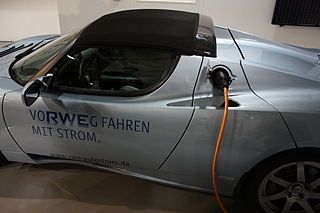From Guest Blogger R. Hoyal: Should Corporate Company Cars Be Electric?

Plug-In Grant
In the United Kingdom, the Plug-in Car Grant is an incentive for companies to choose electric cars for their employee fleet. This grant provides for 25% of the purchase price of the electric car (capped at £5000 per vehicle) and applies only to battery powered electric vehicles and plug-in hybrids. Alternate fuel vehicles are not included. Ten car models are part of the grant but the Tesla car is not in the group. The company will never actually see this £5000; it is deducted from the price between the manufacturer and dealership. In effect, the government is using the grant to subsidize the manufacturers. Therefore the company must weigh this pseudo-benefit when making their decision.
Low-CO2 incentives
The next factor is the incentive designed for cars that produce low emissions. This benefit is not limited to electric cars only, as conventionally fuelled vehicles have redesigned their engines to produce very low emissions and can take advantage of these incentives too. Some vehicles that use the hybrid electric petrol engine produce ultra-low CO2 emissions using the electric motors in combination with efficient petrol engines. Therefore these cars qualify for a reduced rate of BIK tax of 5 per cent – half the current lowest rate for a petrol engine car with CO2 above 75g/km. With a car that emits less than 100g/km you and your company can avoid capital allowance, the showroom tax and the road tax while applying for the greener vehicle discount. Keep in mind, these incentives are not just for electric, they can be applied to high performing low emission fuelled vehicles as well.
BIK (Benefit in Kind Tax)
Another important aspect is the Benefit in Kind tax (BIK). This is the tax drivers of company cars pay for the benefit of their private use of the car. So instead of paying for the upfront cost of purchasing the car, the employee is taxed for a percentage of the value of the car based on the age of the car and emissions. Currently electric vehicles are exempt from BIK. The government announced a five-year ‘BIK holiday’ on electric vehicles from 2010, which means no company car tax to pay. Until 2015, this incentive is a driving force for the use of electric cars by companies and their employees.
When you add up all the incentives, grants, reduction in taxes and insurance reimbursements, the benefits of a corporation choosing an electric car for its fleet of employee vehicles is astonishingly attractive.
